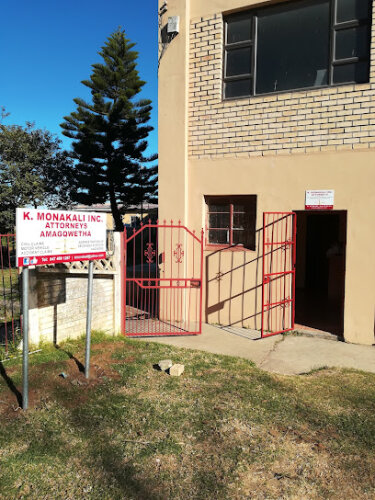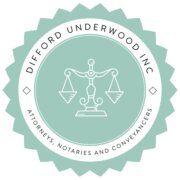Best Natural Resources Lawyers in East London
Share your needs with us, get contacted by law firms.
Free. Takes 2 min.
List of the best lawyers in East London, South Africa
About Natural Resources Law in East London, South Africa
East London, located in the Eastern Cape Province of South Africa, is a region rich in diverse natural resources, including water bodies like rivers and coastal zones, forests, agricultural land, and mineral deposits. The sustainable management, conservation, and utilisation of these resources are governed by a complex set of legal frameworks, which aim to balance environmental protection with development needs. Natural resources law encompasses legislation affecting land use, mining, water rights, forestry, biodiversity, and pollution control in East London. Both public and private stakeholders play roles in safeguarding these resources to ensure they are used responsibly and remain available for future generations.
Why You May Need a Lawyer
There are many circumstances in which individuals, businesses, or communities in East London might require legal assistance in matters related to natural resources. Common situations include:
- Acquiring or transferring land that may have environmental or natural resources considerations.
- Engaging in mining, farming, fishing, or forestry activities that require permits or compliance with environmental regulations.
- Facing disputes over access to water, minerals, or communal land rights.
- Responding to government enforcement actions for alleged environmental harm or regulatory violations.
- Seeking redress for damage caused by pollution or unlawful resource extraction by third parties.
- Applying for or opposing environmental authorisations, such as Environmental Impact Assessments (EIAs).
- Negotiating or reviewing contracts involving the use, extraction, or conservation of natural resources.
- Participating in community resource management or land restitution processes.
Legal expertise is often essential to navigate permitting, compliance, and conflict resolution in these often complex and specialised areas.
Local Laws Overview
East London falls under the jurisdiction of both national and provincial legislation governing natural resources. Key laws and regulations include:
- National Environmental Management Act (NEMA): This framework law mandates sustainable use of the environment and establishes principles for decision-making affecting natural resources, including processes for Environmental Impact Assessments.
- Mineral and Petroleum Resources Development Act (MPRDA): Governs the prospecting, mining, and extraction of mineral and petroleum resources. It also addresses social and environmental obligations.
- National Water Act: Regulates the use, management, and protection of water resources, granting and monitoring water use licenses.
- Conservation of Agricultural Resources Act: Manages soil conservation, veld and flora, and alien species control.
- Eastern Cape Land Administration Act: Provincial legislation influencing administration and use of land, especially communal land and traditional authority areas.
- Marine Living Resources Act: Governs coastal and marine resources, including fishing rights and coastal zone management.
- Forestry Laws: Manage the harvesting, conservation, and commercial use of indigenous and plantation forests.
Compliance with these laws typically requires engaging with government agencies, conducting environmental assessments, and adhering to specific permitting procedures. Violation of regulations can result in fines, remediation orders, or suspension of operations.
Frequently Asked Questions
What qualifies as a natural resource in East London?
Natural resources in East London include minerals, water, soil, forests, coastal areas, and biodiversity (plants, animals, and ecosystems). These are subject to regulation and require responsible management under various laws.
Do I need a permit to extract minerals or sand from my property?
Yes. Extraction of minerals, sand, or gravel typically requires a permit under the MPRDA and a separate environmental authorisation. Illegal extraction can lead to severe penalties.
How do I apply for water use rights?
You must submit an application to the Department of Water and Sanitation, demonstrating your intended use, the impact on other users, and compliance with local catchment management objectives. Legal assistance can help streamline this process.
What are the consequences of polluting a river or wetland?
There are significant legal consequences for polluting water resources, including fines, orders to remediate, and even criminal prosecution. Repeat or severe violations can result in closure of operations.
How are land rights determined in communal areas?
Land rights in communal areas are regulated through national land reform laws and traditional authorities. Disputes may be addressed by the Land Claims Court, or provincial bodies, and often require legal support.
What role do Environmental Impact Assessments (EIAs) play?
EIAs are required for activities that may significantly affect the environment, such as large-scale farming, mining, infrastructure, or industrial projects. They assess potential impacts and propose measures to prevent or reduce harm.
Can I object to a nearby development that threatens local resources?
Yes. As a stakeholder or affected party, you may raise objections during the public participation stage of EIAs or licensing proceedings. A lawyer can help you prepare and submit objections or appeals.
Who investigates allegations of illegal resource use?
Depending on the resource, relevant national or provincial departments (such as environmental, mineral resources, or water authorities) are empowered to investigate. They may also involve local municipalities and law enforcement.
Am I responsible for environmental damage caused by my contractors?
Yes. Owners and operators are often held legally accountable for the environmental impacts of contractors or sub-lessees, so it’s crucial to include strict environmental clauses in contracts and monitor compliance.
What legal recourse do I have if my property is damaged by a neighbouring mine or farm?
You may claim damages in civil court, report the matter to environmental or mining authorities, or pursue mediation. Legal advice is important to assess the best course of action and secure evidence.
Additional Resources
If you need more information or support, consider the following resources:
- Department of Environment, Forestry and Fisheries (DEFF): Manages environmental policy and enforcement.
- Department of Mineral Resources and Energy (DMRE): Oversees mining and mineral rights regulation.
- Department of Water and Sanitation: Handles water rights and compliance matters.
- Eastern Cape Department of Economic Development, Environmental Affairs and Tourism (DEDEAT): Regional authority on development and resource use.
- Legal Aid South Africa: Provides legal support for qualifying individuals on environmental and resource matters.
- Local law clinics and non-governmental organisations focused on environmental justice and rural development.
- Municipal offices (Buffalo City Metropolitan Municipality): For local by-laws and land use inquiries.
Next Steps
If you need legal assistance in the field of natural resources in East London, South Africa, consider the following steps:
- Identify the specific resource or activity creating the legal issue (e.g., mining rights, water access, pollution allegation).
- Gather all relevant documents, including permits, contracts, correspondence with authorities, and any evidence of impacts or disputes.
- Contact a legal practitioner who specialises in natural resources or environmental law in your area. If you cannot afford private counsel, approach Legal Aid South Africa or a local law clinic.
- Prepare to clearly outline your situation and your objectives. Consider your desired outcomes-whether it’s compliance, defending a claim, pursuing damages, or opposing a development.
- Follow legal advice carefully and maintain records of all interactions and proceedings related to your case.
Being proactive in seeking legal guidance helps you protect your rights, ensures compliance with regulations, and promotes sustainable management of East London’s valuable natural resources.
Lawzana helps you find the best lawyers and law firms in East London through a curated and pre-screened list of qualified legal professionals. Our platform offers rankings and detailed profiles of attorneys and law firms, allowing you to compare based on practice areas, including Natural Resources, experience, and client feedback.
Each profile includes a description of the firm's areas of practice, client reviews, team members and partners, year of establishment, spoken languages, office locations, contact information, social media presence, and any published articles or resources. Most firms on our platform speak English and are experienced in both local and international legal matters.
Get a quote from top-rated law firms in East London, South Africa — quickly, securely, and without unnecessary hassle.
Disclaimer:
The information provided on this page is for general informational purposes only and does not constitute legal advice. While we strive to ensure the accuracy and relevance of the content, legal information may change over time, and interpretations of the law can vary. You should always consult with a qualified legal professional for advice specific to your situation.
We disclaim all liability for actions taken or not taken based on the content of this page. If you believe any information is incorrect or outdated, please contact us, and we will review and update it where appropriate.











